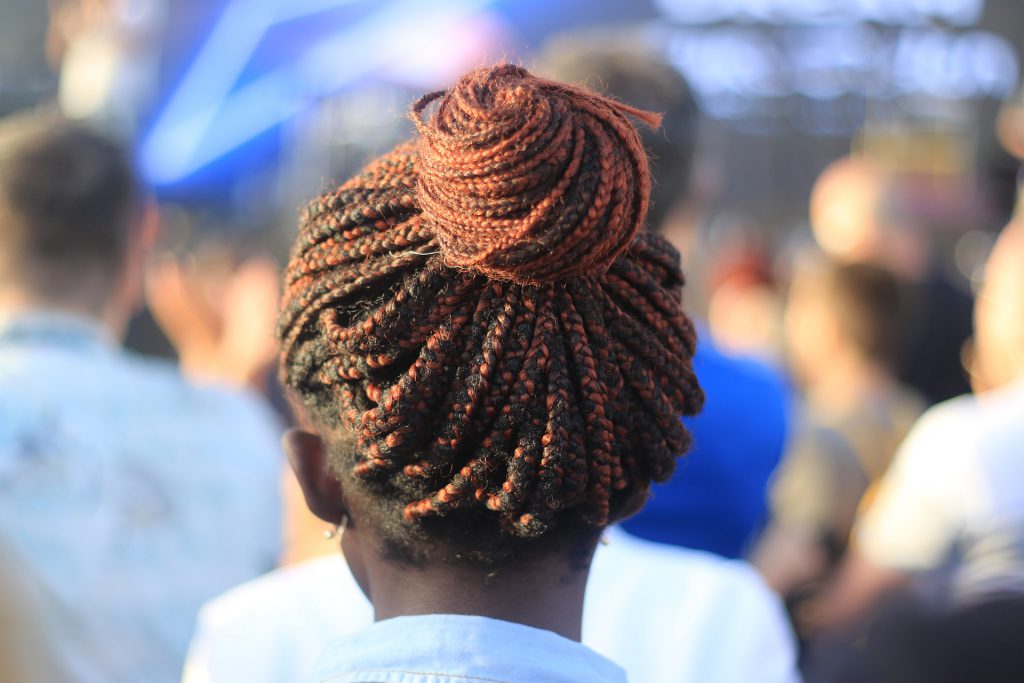Crown Act Targets Humiliating Employer Bias
Many Blacks lose jobs because of how they wear their hair. 47% of Black mothers have experienced such discrimination.
As the House debated the Creating a Respectful and Open World for Natural Hair (CROWN) Act, legislation to ban hair-based discrimination, I couldn’t help but be struck by the irony that the very debate against passage mirrored the ugly reality the bill was crafted to address and perfectly demonstrated the critical need for the bill. It was hurtful and shocking to hear my white male colleagues trivialize the legislation as the “bad hair bill.” They refuse to acknowledge the humiliation and racism experienced by me and my Black women colleagues because of our hair and, by belittling the bill, belittling us by proxy.
According to a Dove study, 47 percent of Black mothers have experienced discrimination because of their hair and are more likely to be considered less ready to perform their job. These biases create pressures that have not only forced women to change their hair, including chemical treatments to “straighten” their curls. For far too many, these racist and classist standards for “professionalism” have cost Black men and women their jobs. With hair discrimination, we are shutting the door of economic opportunity on Black men and women.
These statistics and stories go beyond numbers: they represent the indignities of racism that Black people face at school, work, and everywhere else. There is a financial, emotional, psychological and social cost to this discrimination. No person should feel pressured or be required to style their hair in a way that denies them the ability to freely wear locs, fros, twists, or braids without facing loss of employment or other opportunities.
The CROWN Act secures protections against hair-based discrimination, which is itself just racial discrimination, but it’s not really about hair. This legislation is about economic opportunity fairness, and the freedom to celebrate Black beauty. My hair journey reflects many of the pressures that Black women feel to style their hair in a more Eurocentric manner. I recall people telling my employer that I was an embarrassment because of the way my hair looked. And I remember when I was running for Congress for the first time in 2004, I was advised to keep my hair in a coifed hairstyle. Apparently, that was supposed to look more “presentable” on campaign mailers and pictures. But that style didn’t come natural for me or for my hair. I remember trying to keep my hair “straight” through 20-hour days on the campaign trail, which involves chemicals that burned my scalp, and trying to make sure I didn’t move too much so my hair didn’t frizz up. It was exhausting to try to manage my appearance and focus on connecting with voters and sharing my platform and vision. I am blessed that 18 years later, I came full circle in my hair journey when I presided on the House floor with my sister locs, as the chamber debated and eventually passed the CROWN Act.
I know that the city of Milwaukee has moved to ban such discrimination, as have other cities. And several states have also blocked such discrimination, with legislation pending in the Wisconsin State Legislature to do the same. But racism and discrimination are a national problem that require a national solution.
We work towards building a more just and inclusive society with the CROWN Act. I am excited the House took a critical step towards ending this discrimination, and I implore my Senate colleagues to pass this legislation.
U.S. Congresswoman Gwen Moore represents Wisconsin’s 4th Congressional District.
Op-Ed
-
Wisconsin Candidates Decry Money in Politics, Plan to Raise Tons of It
 Dec 15th, 2025 by Ruth Conniff
Dec 15th, 2025 by Ruth Conniff
-
Trump Left Contraceptives to Rot; Women Pay the Price
 Dec 8th, 2025 by Dr. Shefaali Sharma
Dec 8th, 2025 by Dr. Shefaali Sharma
-
Why the Common Council’s Amended Budget is Good Policy for Milwaukee
 Nov 20th, 2025 by Alds. Marina Dimitrijevic and Russell W. Stamper, II
Nov 20th, 2025 by Alds. Marina Dimitrijevic and Russell W. Stamper, II





















